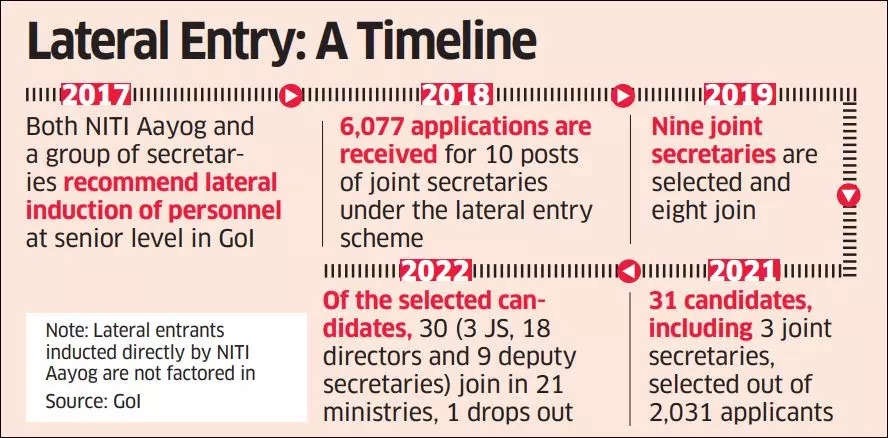In the current central government, there's a push to align the educational qualifications of top Indian Administrative Services (IAS) officers with their assigned roles.
According to Word Bank, Good Governance is defined as “the manner in which power is exercised in the management of a country’s economic and social resources for development”.
IAS comes under All-India services which are services that are common to both Central and state governments. In 1947, the Indian civil Service (ICS) was replaced by lAS.
|
Arguments in favour of existing system of Generalist |
|
|
Status of Domain expertise within the Government (2024) |
|
The last time the country had a full-time finance minister with an educational background in economics was in 1991-1996, when Manmohan Singh held the charge of the ministry.
What is lateral entry initiative in government jobs?

|
Aspect |
Pros |
Cons |
|
Expertise |
Brings in domain-specific expertise from the private sector |
Risk of imbalance between generalists and specialists |
|
Policy making |
Introduces fresh perspectives & innovative approaches |
Potential clash with existing bureaucratic culture |
|
Efficiency |
Can enhance efficiency in government functioning |
Possible resistance from career bureaucrats |
|
Meritocracy |
Promotes merit-based selection, attracting top talent |
May undermine the traditional UPSC selection process |
|
Flexibility |
Allows for flexibility in hiring skilled professionals |
Could lead to short-term focus rather than long-term planning |
|
Accountability |
Professionals from outside may bring a higher degree of accountability |
Accountability mechanisms for lateral entrants might be less stringent |
|
Resource Utilization |
Better utilization of human resources by integrating private sector skills |
Could lead to issues in coordination and integration with the existing system |
|
Public Perception |
Can improve public perception by demonstrating a commitment to modernization |
Public skepticism regarding the fairness and transparency of the selection process |
|
Training and Development |
Injects experienced professionals who may need less training |
Lateral entrants might lack understanding of government processes and protocols |